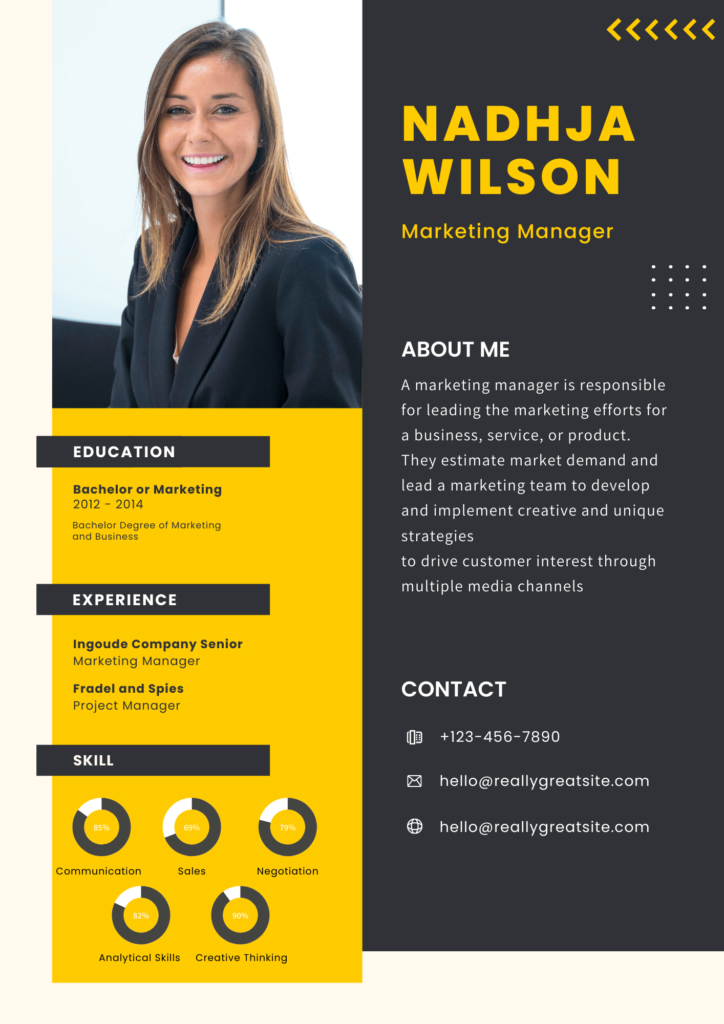In fact, after working from home for several months, not everyone can immediately work effectively from the office. Optimal time management is essential for completing task on time at work. We sometimes feel like time is running out when we are in the office. Then, how do you manage your time when working from the office? Take a look at the 7 time management tips below!

Time management is a method of allocating and managing time spent on various activities in maximizing productivity and achieving already set goals. Good time management allows you to complete various activities and tasks in no time. It also allows you to focus on the time set aside for each task and will become familiar with many exercises each day. This ability is one of the most useful soft skills in the world of work and is also liked by recruiters.

Why is time management so important to practice? So, here are some of the advantages of effective and efficient time management:
With proper time management, you will be able to stay focused and disciplined, allowing you to be more productive and complete tasks on time or sooner. This way, you can complete other tasks quickly or engage in other productive activities without feeling pressed by deadlines.
The next advantage is that it can reduce stress and worry about not being able to complete tasks. Because you can manage the time between tasks, you will know what you need to do and when you need to complete it every day. A successful to-do list will provide you with a clear picture of your progress.
You can complete various activities on time if you have good time management skills. Time management allows you to have more time for hobbies such as going to the gym, resting, spending time with family, and other activities such as spending a weekend with a loved one.

Just like learning other abilities, learning to manage time efficiently also takes time and process. Come on, see together 7 time management tips while working from office (WFO) below:
The first thing you can do is set a time limit for each task. This can help you stay focused and disciplined when completing tasks because each job has its own deadline record, so the chances of missing it are very low.
The second tip is to create a to-do list with a list of tasks/jobs that will be completed the following day. You can make a to-do list before going to bed or at the start of the day before starting an activity. The to-do-list function is intended to help you avoid confusion about what tasks to complete on that day and to keep you focused and organized in carrying out all activities on that day. To-do lists can be made using notebooks, sticky notes, or apps such as Notion, Trello, and others. Choose the method that is most convenient for you.
You may believe that by multitasking, you can complete a large amount of work at once. However, this is not a good time management strategy. Multitasking will cause you to switch tasks in order to complete all of your tasks. As a result, the task is not completed completely and you will tire more quickly. It would be preferable if it only performed one task at a time, as this can help the brain focus. As a result, multitasking is not always beneficial. To maximize results, focus on completing tasks one by one with discipline.
Making a to-do list was previously mentioned as one of the tips for good time management. So, after creating a to-do list, how do you determine which tasks must be completed first? The method is very simple, as illustrated by the Eisenhower Matrix table below:

The Eisenhower matrix assists you in determining the priority of tasks to be completed, ranging from critical to minor. From the picture above, conclusions can be drawn, namely:
It is essential to take breaks while at work. Working for a long period of time without rest causes fatigue and difficulty concentrating. Rest is necessary to keep the brain and eyes from becoming tired too quickly.
There are numerous things at work that can be irritating and distracting. For example, email, WhatsApp chat, Instagram, and other message notifications. Distractions not only reduce productivity but can also increase stress. One of the causes of workplace stress is a lack of control over one's work. If you have a lot of distractions while working, the time management that you have set up will be useless.
There are numerous tools and apps available today to help you manage your time. Starting with Any do, Todoist, Trello, Notion, Time planner, Slack, Google calendar, and many other time management applications. With the help of these various tools, you can slowly get used to being a focused person and trained in good time management.
That was the discussion about 7 time management tips for those of you who are Working From Office (WFO). Get information on Work From Office (WFO) job openings in Bali right now! Check out the job vacancy information today!
Do you know that curriculum vitae and resume are different? In this article, Loker Bali will show the differences between CV and resume. Even though both are mostly used when applying for a job, a curriculum vitae and resume are not always interchangeable. Let’s find out what the differences are!
Down below, Loker Bali spills the key differences between CV and Resume:
| Categories | CV (Curriculum Vitae) | Resume |
| Length | No length limitation. | Usually one to two pages. |
| Content | A complete in-depth document presenting your relevant academic and professional accomplishments that are often used when applying for job positions. | Summary of your professional achievements that are most relevant to the industry job you’re applying for. |
| Purpose | Mostly used to apply for academic roles or programs, grants, fellowships, and research or teaching positions. | Used when applying for jobs in the private or public sectors which are often referred to as “industry positions” in contrast to academia. |
Consider that your resume includes your skills for a specific role, it should normally be one or two pages. But for a CV, doesn’t have a length limit and is typically much longer than most resumes because it includes more detailed information descriptions of your achievements such as research, publications, and presentations.
Usually in the resume, the content is only brief and to the point. You can put a curated summary of your professional accomplishments that are most relevant to the position you’re applying for. You may also include an explanation of your academic background or volunteer experiences. Meanwhile, a CV is a complete in-depth document that presents your relevant academic background and professional achievements.
CV is mostly used to apply for academic roles or programs, fellowships, or research. You may have a CV if you are currently applying to or have graduated. On the other hand, a resume is generally used when you applying for jobs in the “industry positions”.
A curriculum vitae (CV) includes a summary of your experience and skills. Usually, CVs are longer than resumes, around at least two, three, or more than three pages. The more experience you have, the longer your CV will be. Meanwhile, CVs for mid-level candidates who have numerous publications tend to be much longer. Cvs are normally formatted in structural order—start with your educational experiences.
To spot the differences between CV and Resume, Loker Bali will give you a closer look at the example of a CV:

A resume is a document that summarizes your career history, skills, education, and other achievements. A resume should be as short as possible. Generally, a resume is one page long however, sometimes it can be as long as two pages. Resumes come in a few types of formatting. The tip is, to select a format that best fits the type of job you are applying for.
To spot the differences between CV and Resume, Loker Bali will give you a closer look at the example of a Resume:

!! GET AN ASSISTANT TO HELP YOU IN WRITING A CV/RESUME !!

If you feel unsure whether the employer requires a resume or CV, Loker Bali will give you the following questions to help determine the best document:
If you’re applying for a job as a teaching assistant, or researcher at a college or university, then you’ll probably need a CV. Be sure to check the school’s website or ask a recruiter for this information before you apply.
To determine which you should send to the recruiter, first examine the type of job you applying for. A “CV” may refer to a resume or longer-term—depending on where the company is located. If you’re applying for an academic position, the recruiter is likely looking up a traditional CV. Meanwhile, if you’re applying for other types of jobs with a business or a staff, the recruiter is likely looking up the shorter form style resume.
!! FREE CV TEMPLATES FOR A PERFECT START TO YOUR NEW CAREER !!
Hope this article helps you to spot the differences between CV and Resume. If you’re doubtful about whether to submit a resume or a CV, think about the role and company location of the position. Don’t hesitate to ask a representative of the company such as the recruiter or an HR to help you decide. Loker Bali can help you prepare yourself for upcoming interviews with our Coaching Service. Visit our website now!